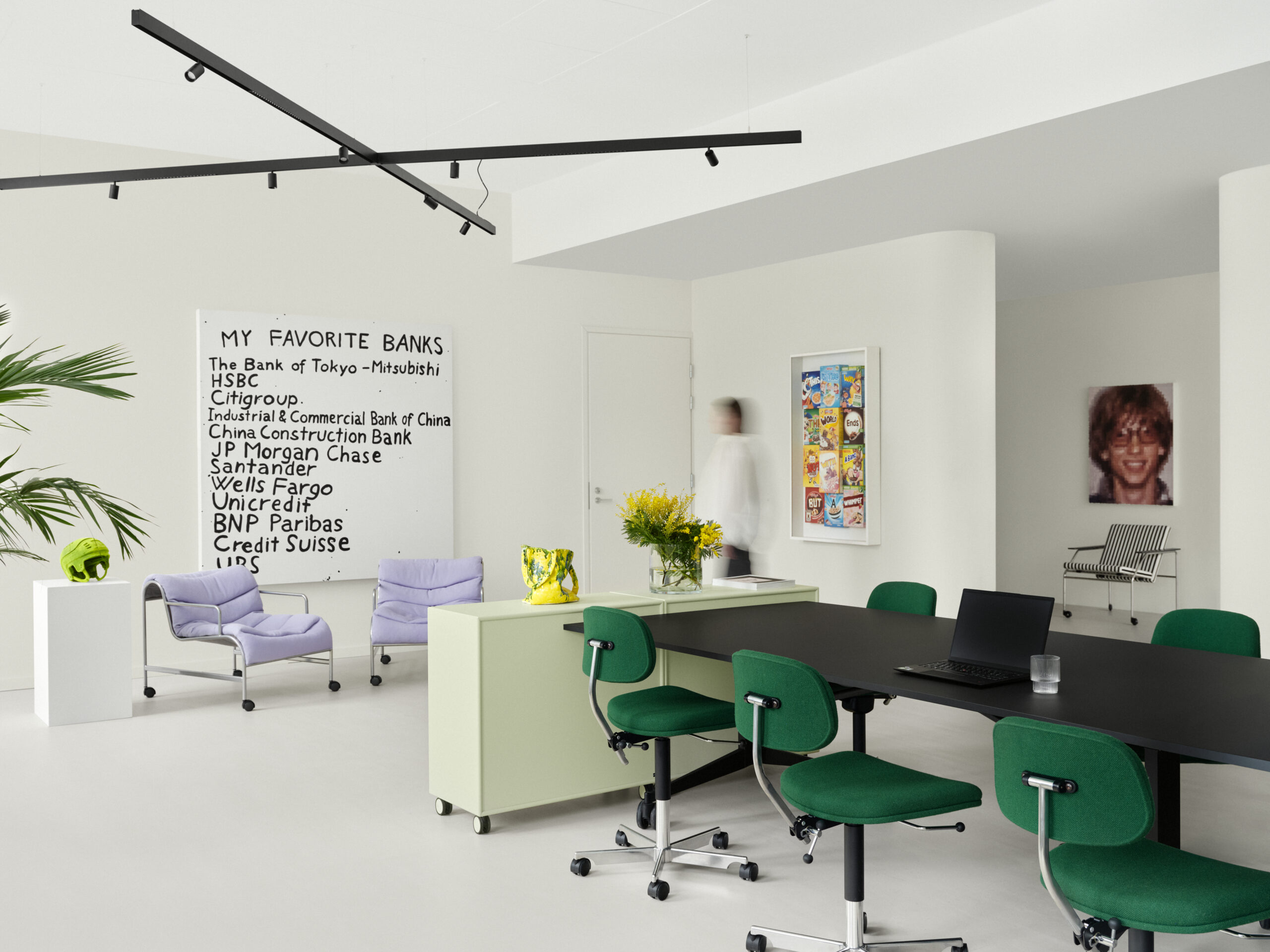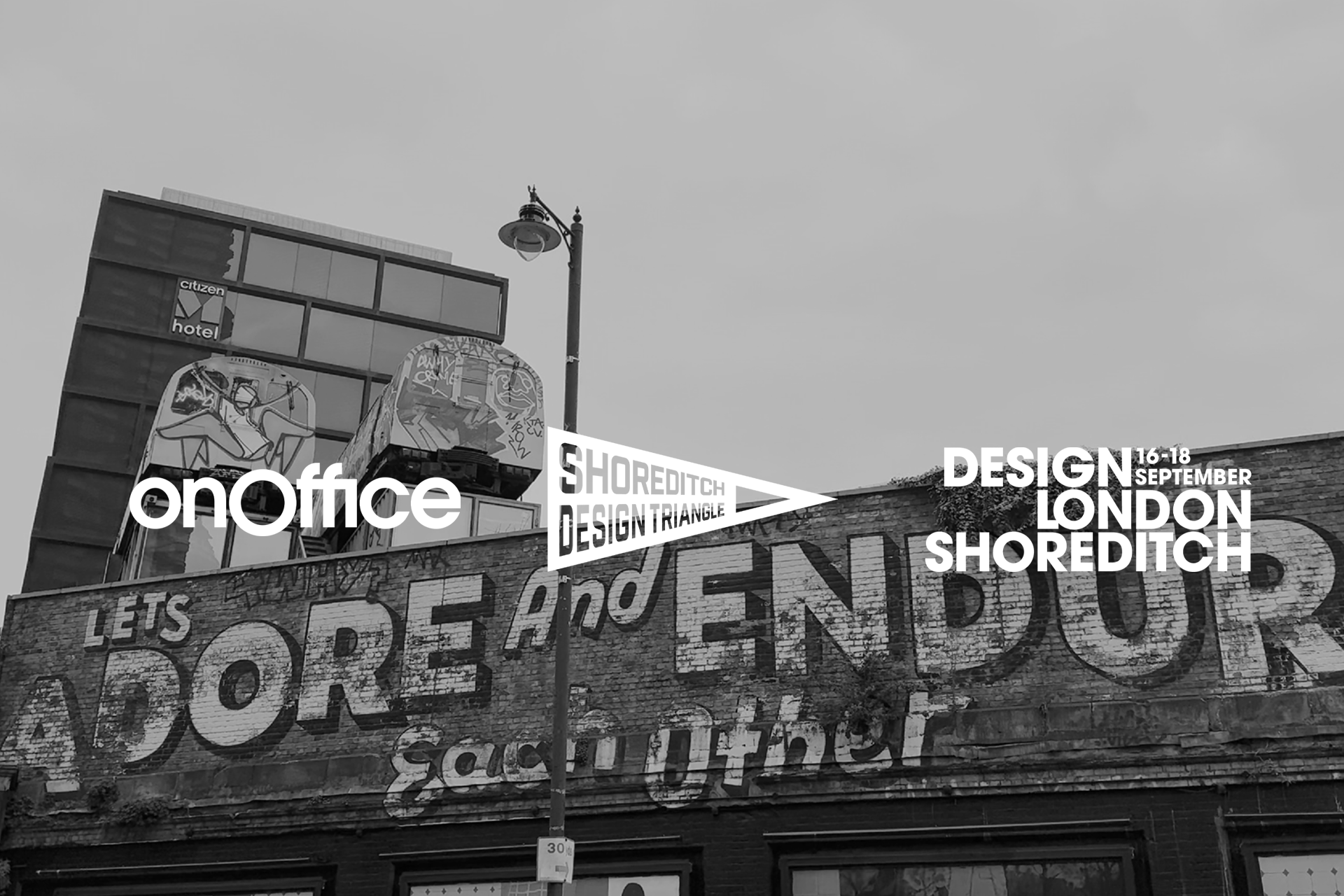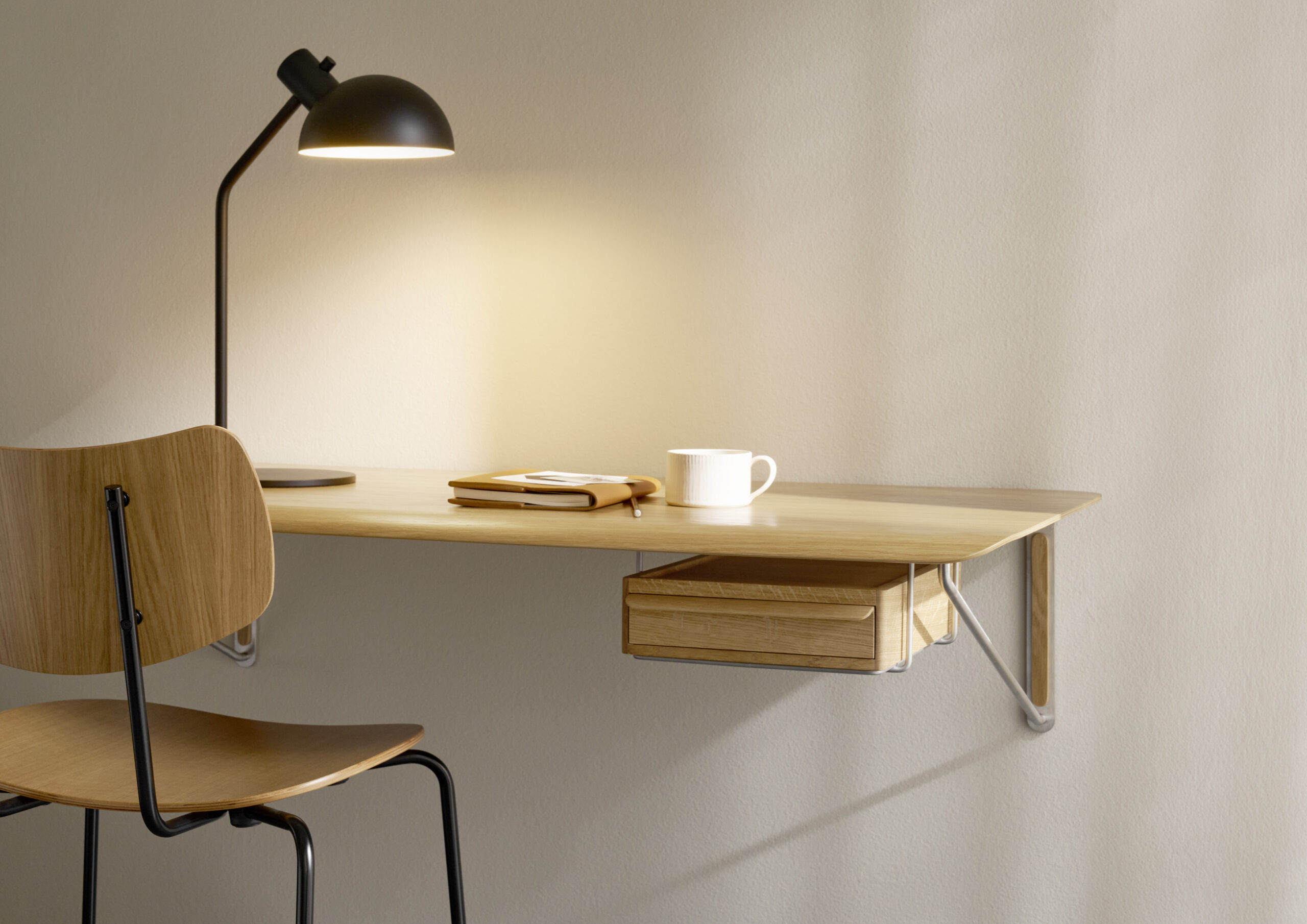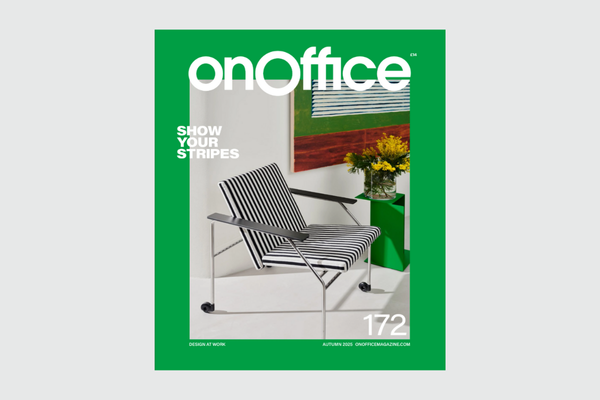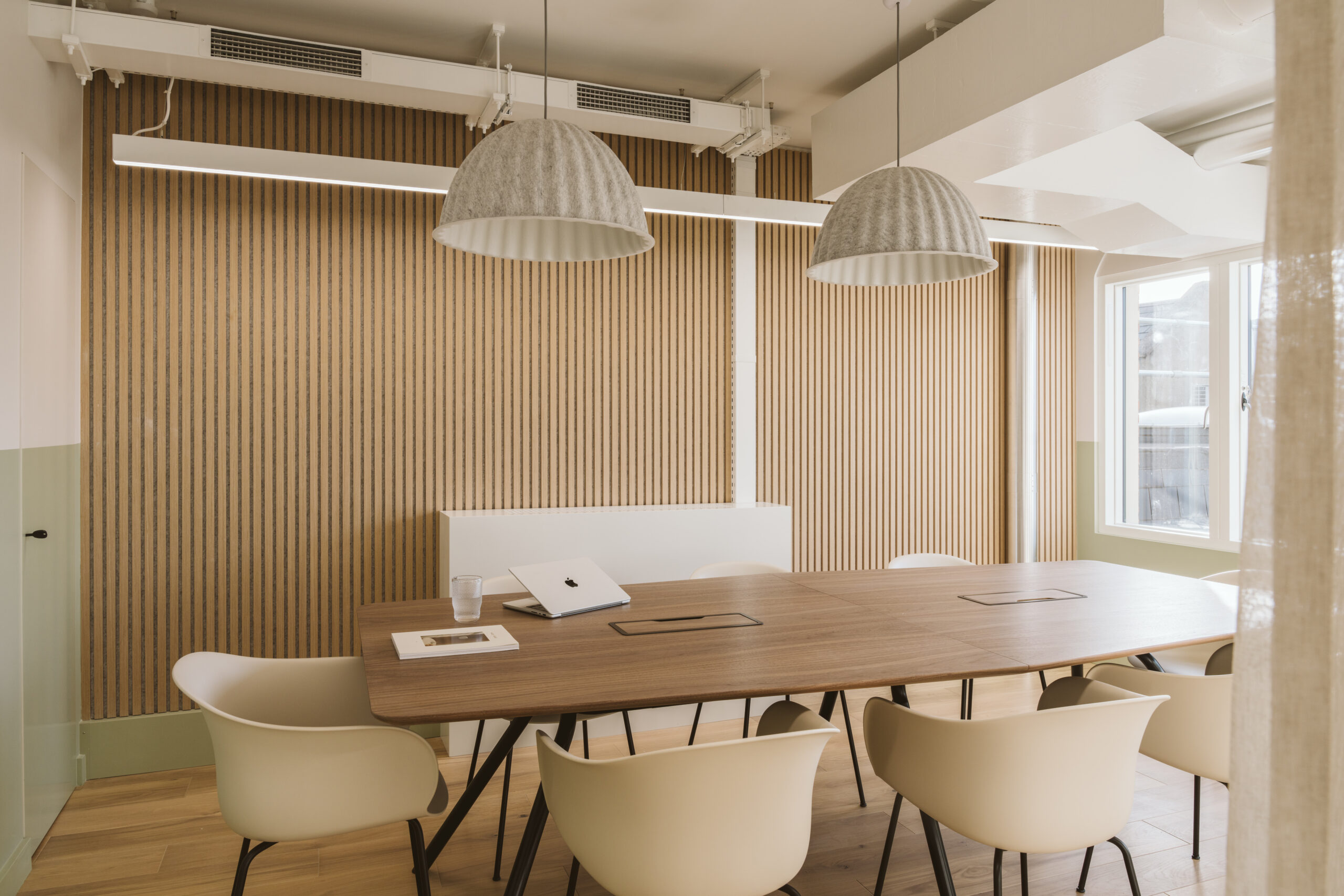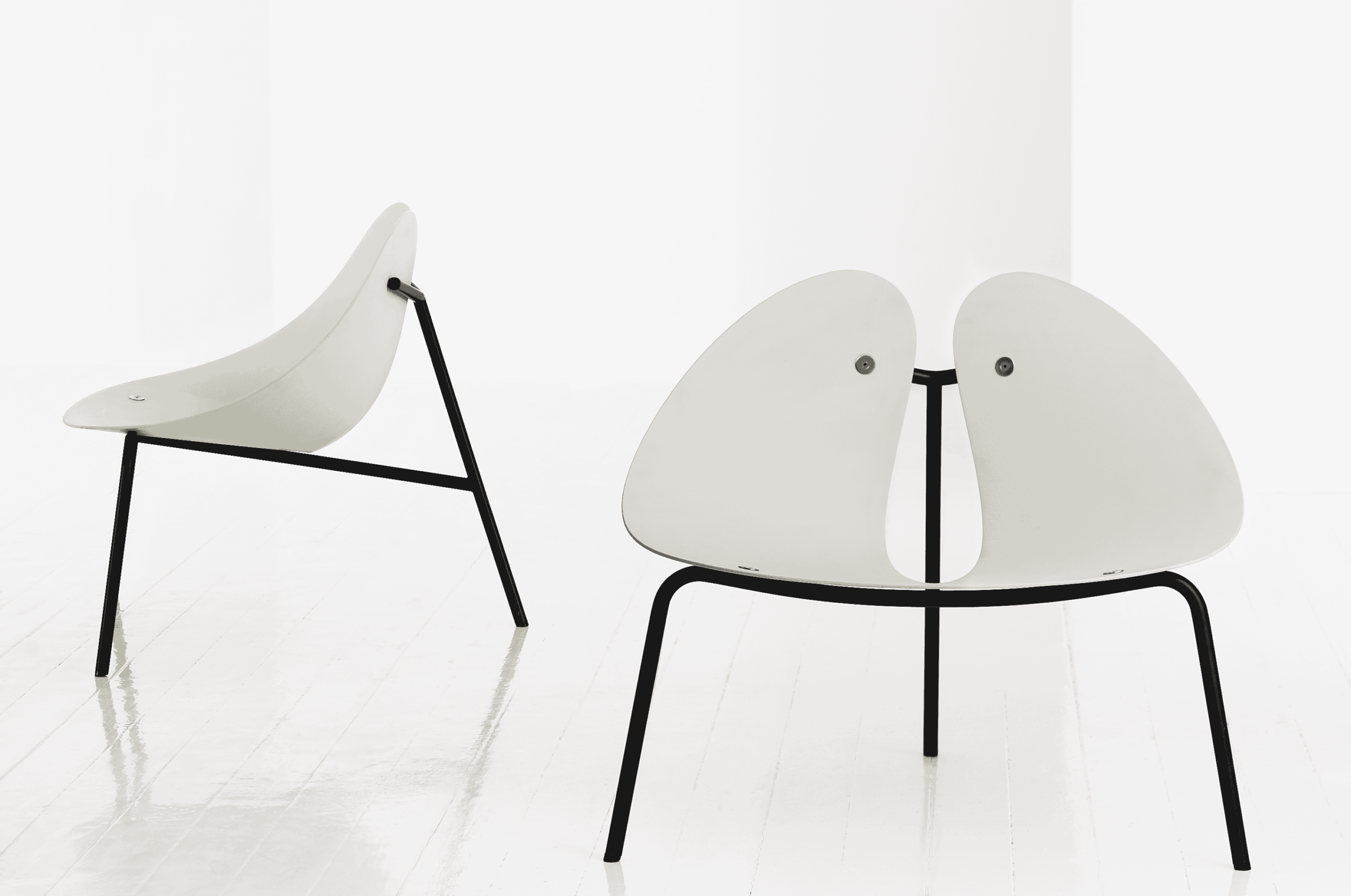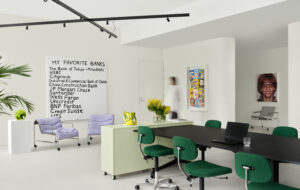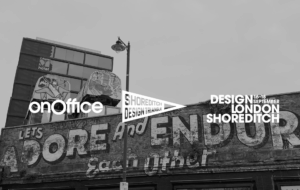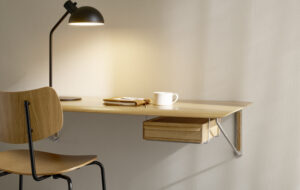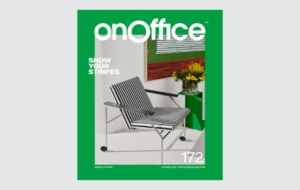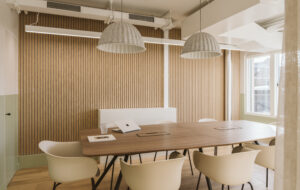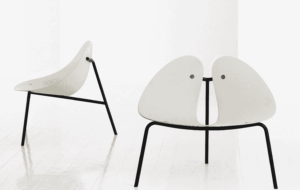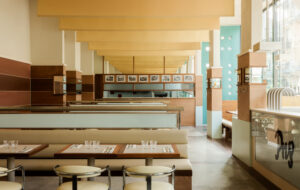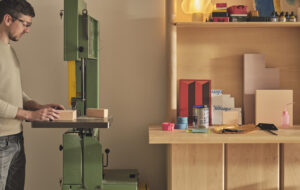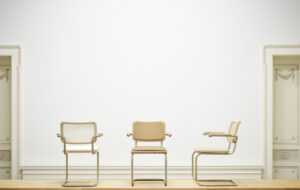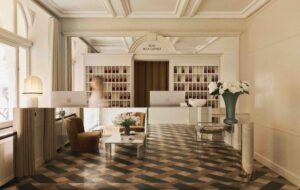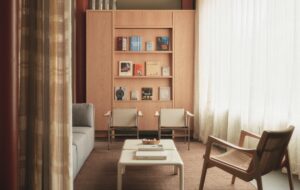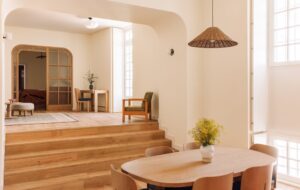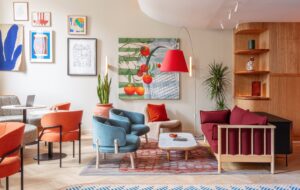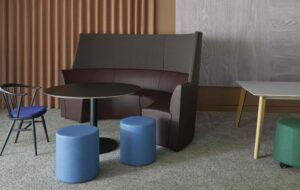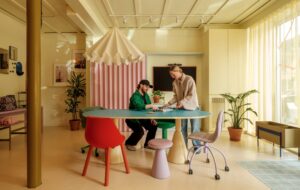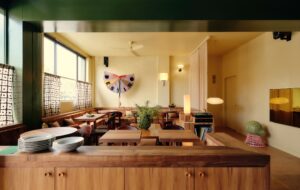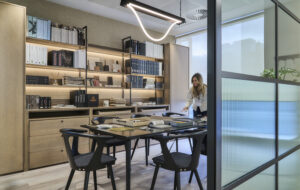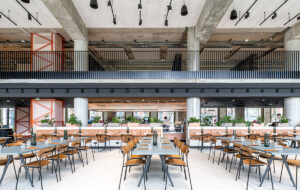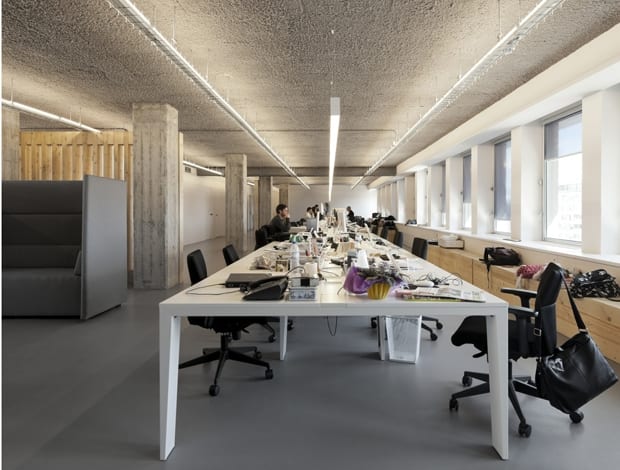 The table in the main working area can seat up to 36 people|Wooden partitions create a visual divide|High backed sofas create their own breakout space and informal meeting area|Removing most of the walls helped to make the office less cramped|Touches of wood help to add warmth to the design||
The table in the main working area can seat up to 36 people|Wooden partitions create a visual divide|High backed sofas create their own breakout space and informal meeting area|Removing most of the walls helped to make the office less cramped|Touches of wood help to add warmth to the design||
Colectiv/Arquitectura has designed communications agency TBWA‘s Lisbon HQ, using sleek lines and a monochrome palette to maximise space.
TBWA was downsizing from an office of 1,200sq m to a floor in a 1970s building, measuring less than 500sq m. The brief it set was simply ‘disruption’, a guiding concept for the agency and, in this instance, a way to break with preconceived ideas about office space. A tight budget and limited time frame further challenged Colectiv/Arquitectura.
The interiors firm stripped back the previous tenant’s bland white walls to the concrete support columns to open up the office, leaving enclosed areas for the financial department and boardroom only. The floor was levelled using a dark grey epoxy resin, while the ceiling was coated with a cellulose skin made from pigmented recycled newspaper that functions as an acoustic dampener.
Wooden dividers with widely spaced vertical planks act as visual filters and add interest and warmth to the pared-back design, as do the solid wooden blocks used sparingly about the offices as benches or to support equipment. One wall is painted with blackboard paint to tone in with the monochrome scheme, while adding a hint of playfulness.
Light fixtures are positioned to reflect off the ceiling and create a diffused, ambient lighting effect, while the wooden dividers and blackboard are emphasised with spotlights.
The main work area holds an extra long table, which can seat up to 36 people, saving a substantial amount of space compared to individual desks. Its position along one side of the office next to the windows means all the workspace also benefits from natural light and ventilation.
Four large high-backed sofas face each other in the centre of the space, creating an informal meeting area and breakout space. On the other side of the office, a wooden table lit by ceramic pendant lamps offers a place for small informal work groups.
Colectiv/Arquitectura made the wooden furniture and fittings bespoke to reduce costs, but gave preference to materials and furniture made by local designers, including sofas from Zerodois, work and meeting tables from Famo, and chairs from Julcar.

